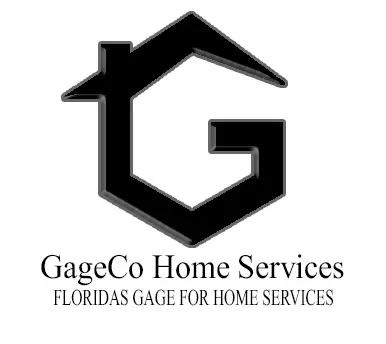Understanding Property Management Software Costs

How much does property management software cost? The cost can vary significantly based on factors like portfolio size and needed features. Here’s a quick breakdown:
- Basic Entry-Level: Around $50/month for essential features
- Mid-Range: $100-$250/month, includes advanced tools
- Enterprise: $500+/month, full feature set for large-scale management
Managing properties involves many moving parts, from rent collection to maintenance, and keeping track of everything can be overwhelming. This is where property management software (PMS) comes in.
PMS automates and simplifies these tasks, saving time and reducing errors. By offering features like online payments, tenant communication, and maintenance tracking, it helps keep operations running smoothly.
However, with varying costs, it’s crucial to understand what you need and set a realistic budget.
Read on to learn more about the factors that affect PMS costs and how to choose the best option for your needs.

Factors Affecting Property Management Software Costs
Understanding how much to budget for property management software involves looking at several key factors. Let’s break these down:
Number of Units
The number of units you manage is a big factor. Most software providers charge based on the number of properties.
- Small portfolios (1-50 units): Expect lower monthly costs.
- Medium portfolios (51-200 units): Costs increase as more features are needed.
- Large portfolios (200+ units): You’ll likely need enterprise-level solutions, which are pricier but offer advanced functionalities.
Integrations
Integrations with other tools can add to the cost. For example, connecting your PMS with accounting software, payment gateways, or maintenance systems often comes with extra fees.
- Basic integrations: Usually included in lower-tier plans.
- Advanced integrations: Available in mid-range or higher-tier plans, often at an additional cost.
Customization
Customization allows you to tailor the software to meet your specific needs. This can be a significant expense, especially if you need extensive changes.
- Standard features: Typically included in the base price.
- Custom features: Charged on an hourly or project basis.
Users
The number of users who need access to the software also affects the cost. More users often mean higher subscription fees.
- Single-user plans: Cheaper but limited.
- Multi-user plans: More expensive but necessary for larger teams.
Data Storage
Data storage requirements can vary. If you manage a lot of properties, you’ll need more storage, which can increase costs.
- Basic storage: Usually included.
- Additional storage: May incur extra charges.
Support
Support options can greatly influence costs. Basic plans might offer email support, but premium plans often include phone support and dedicated account managers.
- Basic support: Included in lower-tier plans.
- Premium support: Available in higher-tier plans, often at an additional cost.
Cloud vs On-Premise
Choosing between cloud-based and on-premise solutions impacts the budget. Cloud-based solutions are generally more affordable and easier to maintain, while on-premise solutions require significant upfront investment and ongoing maintenance.
- Cloud-based: Lower initial cost, ongoing subscription fees.
- On-premise: High initial cost, lower long-term fees but higher maintenance.
Company Size
The size of your company also plays a role. Larger companies may need more robust solutions with advanced features, driving up costs.
- Small companies: Can often get by with basic plans.
- Large companies: Likely need comprehensive, higher-priced plans.
Understanding these factors helps you budget effectively and choose the right property management software for your needs.
Next, let’s dive into the different pricing tiers for property management software to give you a clearer picture of what to expect.
How Much Does Property Management Software Cost?
When budgeting for property management software, it’s important to understand the different pricing tiers. Here’s a breakdown to help you out:
Pricing Tiers
1. Entry-Level: Entry-level software typically costs around $50 per month. These basic plans offer essential features like listing management, task tracking, and e-signing. They are great for small landlords or those just starting out.
2. Mid-Range: Mid-range options cost between $100 and $250 per month. These plans come with more advanced features such as integrated payments, screening tools, custom reports, and mobile apps. This tier is ideal for growing portfolios needing more functionality.
3. Enterprise: Enterprise software starts at $500 per month and can go much higher. These solutions offer the fullest array of built-in features and customizations, making them perfect for large-scale property management companies.
Monthly vs Annual Billing
Most property management software providers offer both monthly and annual billing options.
- Monthly Billing: Offers flexibility but can be more expensive in the long run.
- Annual Billing: Usually comes with a discount, making it cheaper overall.
For example, if a mid-range plan costs $150 per month, an annual plan might cost $1,500, saving you $300 a year.
Real-World Example
Let’s look at a real-world example to make this clearer:
Mark manages 35 units and opts for a mid-range plan costing $2 per unit per month. He pays $70 monthly or $840 annually. If he chooses annual billing, he might get a discount, reducing his cost to around $750 per year.
Summary Table
| Tier | Price Range | Features |
|---|---|---|
| Entry-Level | $50/month | Basic features like listing management, task tracking, e-signing |
| Mid-Range | $100-$250/month | Advanced features like integrated payments, custom reports, mobile apps |
| Enterprise | $500+/month | Comprehensive features and customizations for large-scale operations |
Understanding these pricing tiers and billing options will help you budget effectively and choose the right property management software for your needs.
Now that you have an idea of the costs, let’s explore the key features of property management software.
Key Features of Property Management Software
When choosing property management software, understand the key features that can make your life easier. Here are the primary functionalities you should look for:
Online Payments
Online payment functionality allows property managers to securely accept and process rents, fees, and other charges electronically. This feature simplifies accounting by automatically recording tenant transactions, eliminating most physical checks.
Accounting
Property management systems often include specialized trust accounting modules. These modules handle key tasks like recording owner incomes, reconciling security deposits, and producing monthly owner statements. Automation in accounting tasks improves transparency and reduces manual effort.
Maintenance
The maintenance module is crucial for tracking repair requests, assigning tasks to technicians, and monitoring vendor invoices. This centralized portal improves coordination and communication between tenants, property managers, and contractors, ensuring timely issue resolution.
Leasing
Leasing capabilities streamline the rental process by centralizing listing management, applicant screening tools, and e-signing of leases/documents. This makes handling sensitive applicant data secure and optimizes workflows through templates and analytics.
Communications
Communication tools within property management software facilitate direct messaging with tenants via integrated email and SMS platforms. These tools link to tenant profiles and accounts, enabling prompt and tracked interactions while retaining digital records of correspondences.
Portals
Portals provide custom logins for tenants and owners or managers to privately access statements, view balances, submit maintenance requests, and manage other account activities digitally. This self-service access reduces administrative tasks for staff and empowers stakeholders.
Document Storage
Document storage functionality ensures centralized and secure retention of critical paperwork like leases, invoices, statements, and inspection reports. Managers benefit from reliable and organized records that are easily accessible to appropriate parties.
Reporting
Robust reporting capabilities generate customizable views of granular property, unit, and portfolio metrics like occupancy rates, collections, profitability, maintenance, and liability. Business intelligence tools offer smarter data insights to guide critical management decisions.
Configurability
Configurability allows you to tailor the software to your specific needs, ensuring it aligns with your workflows and business processes. This flexibility can be a game-changer for managing diverse property portfolios.
Mobility
Mobile apps enable property managers to access essential functions on the go. Whether it’s approving maintenance requests, communicating with tenants, or reviewing financial reports, mobility ensures you can manage properties from anywhere.
Integrations
Lastly, integrations with other software systems like accounting tools, CRM platforms, and payment gateways are vital. Seamless integration ensures data consistency and reduces the need for manual data entry, saving time and reducing errors.

Understanding these key features will help you choose the right property management software that meets your specific needs.
Next, let’s look at the different types of property management software available.
Types of Property Management Software
Property management software comes in various types tailored to specific needs. Here’s a breakdown of the most common types:
Small Landlords
For small landlords managing a few rental units, simplicity is key. Software designed for this group focuses on basic functions like rent collection, lease management, and tenant communication. These platforms are often affordable, with some solutions starting at around $100 per month.
Single-Family Homes
Managing single-family homes requires software that can handle individual property details efficiently. These platforms often include features like maintenance tracking, tenant screening, and financial reporting. They offer a streamlined way to manage properties without the complexity required for larger portfolios.
Apartments
Software for managing apartment complexes needs to support multiple units and tenants. For example, platforms designed for property managers handling up to 250 units include features that ensure all aspects from leasing to maintenance are covered, priced at approximately $169/month.
Short-Term Rentals
Short-term rental management software focuses on maximizing occupancy and streamlining guest experiences. Platforms offer dynamic pricing tools, automated messaging, and multi-channel listings. Costs can range from $100 to $250+ monthly, often with per-unit fees. These tools are essential for managing the dynamic nature of vacation rentals.
Hotels
Hotel management systems are more complex due to the high volume of guests and services. Leading platforms integrate rate management, housekeeping, and front desk automation. These systems can cost $3,000+ monthly, often charging per room. They provide comprehensive solutions to handle reservations, amenities, and guest services efficiently.
Small Business Owners
For small business owners managing commercial properties, software needs to handle lease administration, rent collection, and maintenance coordination. Entry-level platforms start around $100 per month. These systems include features like scheduled invoices, expense reconciliation, and budgeting, tailored to the unique needs of commercial real estate.
Understanding the types of property management software helps in selecting the right one for your specific needs.
Frequently Asked Questions about Property Management Software Costs
What is a typical software program used in the property management profession?
Typical property management software programs include a variety of features to streamline operations. These programs often provide tenant management, rent collection, maintenance tracking, and financial reporting. For example, platforms designed for property managers handling up to 250 units are priced at approximately $169 per month, making them flexible and efficient for managing apartment complexes.
Is there a software to track rental properties?
Yes, there are several software options specifically designed to track rental properties. These tools help landlords and property managers keep tabs on various aspects of their properties, from lease agreements to maintenance requests. Comprehensive vacation rental software helps maximize occupancy and streamline guest bookings. These platforms often charge per unit fees and range from $100 to $250+ monthly, offering features like channel management, automated messaging, and dynamic pricing tools.
How much does property management charge in the US?
Property management software costs in the US can vary widely based on the type and scale of properties managed. Here’s a quick breakdown:
- Residential Property Management: Entry-level software for small landlords can start around $100 per month. More advanced options for larger portfolios can range up to several hundred dollars monthly.
- Vacation Rentals: Software tailored for short-term rentals typically costs between $100 to $250+ per month, often with additional per unit fees.
- Hotels: Hotel management systems are more expensive, generally starting at $3,000+ monthly. These systems include features like rate management, reservation handling, and housekeeping assignments.
- Commercial Properties: For small business owners, commercial property management software starts around $100 per month and scales with the number of leased spaces managed.
Understanding these costs can help you budget effectively for property management software.
Conclusion
In summary, understanding how much property management software costs is crucial for making an informed decision. Costs can range from around $50 per month for basic entry-level software to $500+ per month for enterprise solutions. The price you pay will depend on factors like the size of your portfolio, the number of users, and the specific features you need.
At GageCo Home Services, we recognize that choosing the right property management software is a significant decision. Our services are designed to provide a personalized approach custom to your unique needs. With over 30 years of experience in the Real Estate Service Industry, we offer a comprehensive range of services, from maintenance to full-scale property management.
Our commitment is to use our local knowledge and advanced technology to streamline your property management tasks. Whether you manage a few rental units or an extensive portfolio, our expertise ensures you receive top-notch service and support.
Let us help you open up the full potential of your property management operations. Contact us today to learn more about how we can assist you in making the best choice for your property management software needs.


